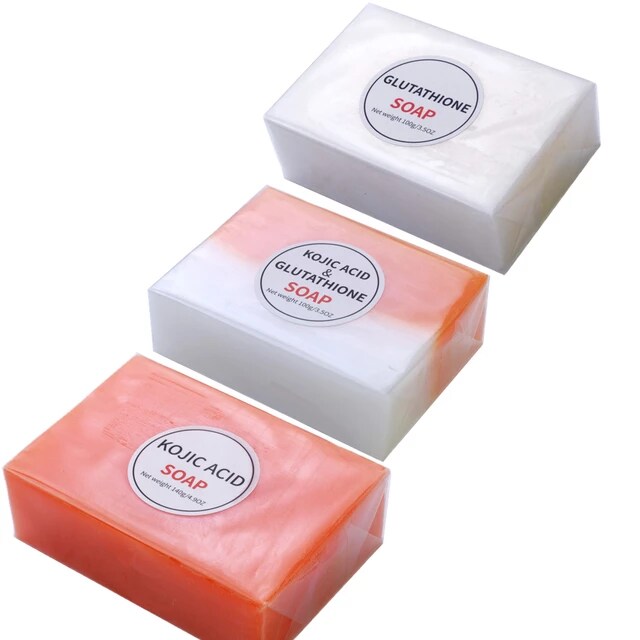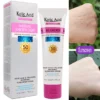Description
What kojic acid helps?
The role of kojic acid is mainly used for skin whitening. Many consumers use cosmetic products containing kojic acid to lighten freckles and other dark spots on the skin. Although primarily used for cosmetic purposes, kojic acid also has uses in preserving food color and killing certain bacteria. Apply to the skin to reduce the amount of melanin secretion.
What Glutathione helps?
Glutathione is also an antioxidant that a healthy body produces naturally, but its production capacity decreases with age. Glutathione is said to ward off the harmful effects of free radicals, delay aging and prevent degenerative diseases, among others. It also helps prevent and reverse sun damage to the skin. Adding glutathione to the skin through the use of soap can prevent the skin from producing melanin, lighten skin tone, and reduce pigmentation and scarring.
Skincare experts believe that glutathione soap has many benefits for skin care. The active ingredient glutathione is one of the most powerful antioxidants. Regular use of glutathione-containing soaps, ointments and lotions can reduce wrinkles and keep skin elastic and youthful. Many people claim that this soap is good for improving skin tone and preventing and treating acne breakouts.
Many skin conditions, such as melasma, can cause darkening and discoloration of the skin. Glutathione-containing soaps and skin care products are often used to lighten skin tone. People with age spots, freckles and skin hyperpigmentation can benefit from regular use of glutathione soap. Its effect on the skin manifests gradually. If you want to use glutathione to lighten your skin, it is recommended to use a soap or lotion that contains this ingredient every day for several weeks.
Compared with other skin lightening factors, glutathione soap has fewer side effects. This is because the substance itself can be produced by the normal human body and is therefore generally not corrosive to the skin.
Frequently Questions:
1. Why does soap bubble water?
Natural handmade soap will produce 20-25% glycerin during the production process, plus a lot of precious moisturizing ingredients originally contained in vegetable oil. When the weather is humid, the handmade soap will automatically condense and lock the moisture in the surrounding air, so it condenses into the soap surface The water drops have no effect on the use of soap, just wipe it off.
2. The color and fragrance of soap
The color added in the soap is a natural pigment content of a few ten thousandths. Although some soaps are rich in color, they will be washed away with water during the washing process and have no effect on the skin (the pigments in food and lipsticks are all natural and safe). Our soaps will try to maintain the original flavor and use natural pigments, such as flowers and plants. , Chlorella, natural mineral mud, Chinese herbal medicine, green tea powder, carrot juice, cocoa powder, etc., can make soap more fragrant and nutritious. In order to match the soap with aromatherapy, some soaps use pure plant essential oils to add fragrance to the soap. However, the flavor of natural essential oils added will gradually fade and volatilize over time.
3. The shelf life of soap
Because soap soap does not add chemical stabilizers, preservatives, and preservatives, the storage time of soap soap is much shorter than that of industrial soap. It can be used within 3 years when stored in a cool and dry place. In general, soap is better to be used within one year.
4. How to preserve soap
Handmade vegetable soap contains many natural ingredients and plant essences, so you should usually store the soap in a cool and dry place, so that the moisturizing ingredients in the soap can keep fresh. Soap that is not needed for a period of time can be stored in the refrigerator.

















Reviews
There are no reviews yet.